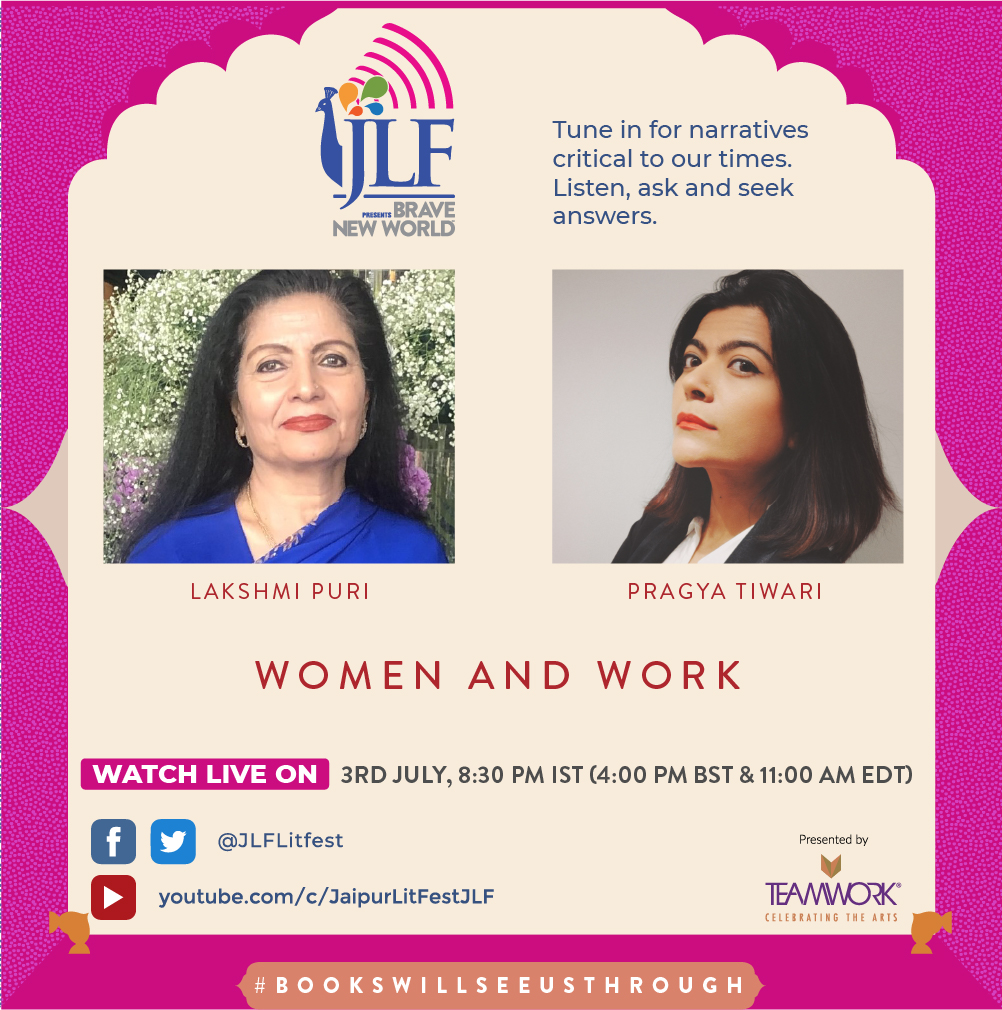


Gendered Norms and the Work Space: Lakshmi Puri in Conversation with Pragya Tiwari
Growing up, the term ‘superwoman’ was often associated with women around me and I remember feeling nothing but pride to be surrounded by strong, powerful women who balanced both the outside and the inside, without breaking into a sweat. It was only much later in college, when I discovered works of Mary Wollstonecraft, Simon de Beauvoir and Judith Butler, to name a few, I realised that even this idealisation of women comes from prescribed gendered roles that none of us signed up for.
While the feminist movements that have preceded us have had their work cut out for them, with the rising differences in terms of class and race all over the world, along with caste in India, it has become difficult to follow a unified movement with singular-minded goals for all. Feminism for me means something else than what it does for my grandmother, for my house help, so on and so forth. For my grandmother, it draws from her memories of being a rebel as she was growing up, asserting her rights even through her marriage and never compromising on her style of life, whereas for my house help it means pushing for her daughter to finish her education.
On JLF Brave New World, Lakshmi Puri’s conversation with Pragya Tiwari weaved through this tricky maze to lead us to where the movement stands today. The former Deputy Executive Director of UN Women drew attention to “norm building†and “standard-settingâ€, both of which, according to her, are extremely important to make it a level playing field for all genders. Lakshmi spoke at length about the Sustainability Development Goals put forth in the UN, within which, Gender Equality plays a significant role. While speaking about the goals, Lakshmi laid a lot of emphasis on recognising the value of unpaid care work and the birth of the concept of the care economy.
Care work has been a focus of policy debates, especially with the International Labour Organization stepping in. There is a case for comprehensive policy intervention in the care economy that meets the Sustainability Development Goals in education, health, and decent work. “That is what is important, a political buy in to change laws, policies, measures, and implementing those,†Lakshmi commented while speaking about drafting norms and goals at an international level.
Coming back on the concept of women being multitaskers, something that is constantly propagated through advertisements and other forms of media, women are burdened with much of the care work with no recognition and almost no money. Besides the non-compensation, unpaid for care work leaves women with little to no time for rest, leisure or for other paid work, impacting the economy directly by reducing its working population drastically.
Even within the existing economic structures across urban India, where women are active participants of the workforce, the dubiousness around maternity leaves and having access to formal care facilities, not only widens the gap between those who can afford personal caretakers and those that have to juggle both roles, but eventually also ties into the general reluctance that is often observed while hiring women- a conscious and unconscious bias.
What is also important to understand is that while drafting effective policies and implementing well-structured schemes are important steps to empower women, social norms also need to be challenged and worked on simultaneously in order to see any visible change. Gendered division of work, vulnerable workers and basic access to tools for growth, all need to be scrutinised through microscopic and macroscopic lenses.



Leave a comment